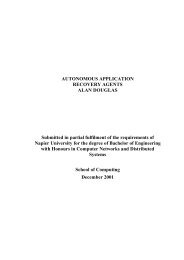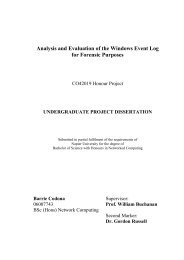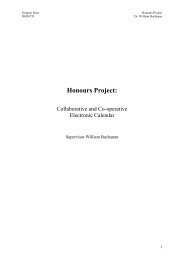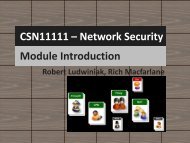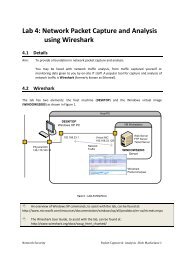Complete set: Intro to C - Bill Buchanan
Complete set: Intro to C - Bill Buchanan
Complete set: Intro to C - Bill Buchanan
Create successful ePaper yourself
Turn your PDF publications into a flip-book with our unique Google optimized e-Paper software.
}<br />
}<br />
class Profile : People<br />
{ // Inherit from People<br />
public void Display()<br />
{<br />
Console.WriteLine("Name: "+Name);<br />
}<br />
public override void ToLowerCase()<br />
{<br />
Console.WriteLine("Method has been overwritten");<br />
}<br />
}<br />
class Test<br />
{<br />
static void Main()<br />
{<br />
Profile p1 = new Profile();<br />
p1.Name="Fred";<br />
p1.ToLowerCase();<br />
p1.Display();<br />
System.Console.ReadLine();<br />
}<br />
}<br />
}<br />
Sample Run<br />
Method has been overwritten<br />
Name: Fred<br />
Every class derives from the Object, of which the main methods are:<br />
duction <strong>to</strong> .NET<br />
• Equals(). Determines if two objects are the same.<br />
• Finalize(). Cleans up the object (the destruc<strong>to</strong>r).<br />
• GetHashCode(). Allows an object <strong>to</strong> define its hash code.<br />
• GetType(). Determine the type of an object.<br />
• MemberwiseClone(). Create a copy of the object.<br />
• ReferenceEquals(). Determines whether two objects are of the same instance.<br />
• ToString(). Convert an object <strong>to</strong> a string.<br />
It can be seen from Figure 7.3 that some of these methods have been derive from the<br />
main object model. As an example, we can override these methods for any object<br />
that is created.<br />
<strong>Intro</strong><br />
Agilent .NET Course: Objects 14


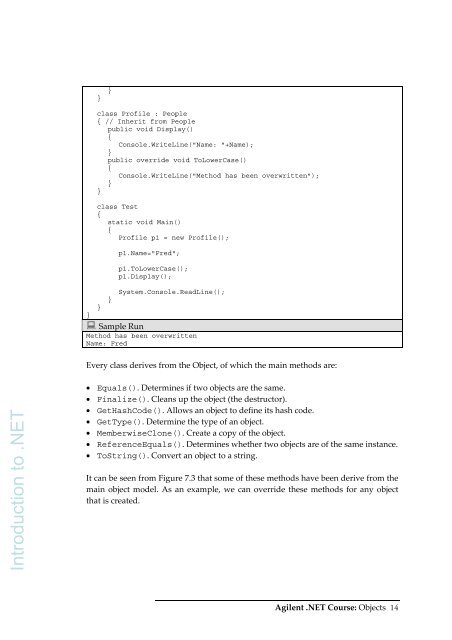
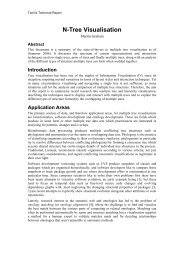
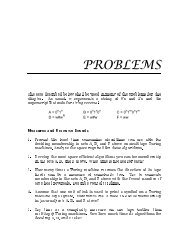
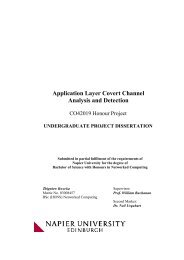
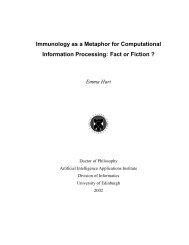
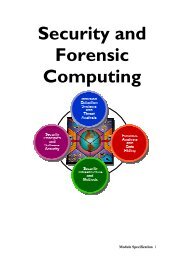

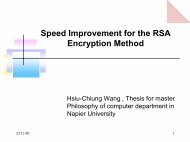
![Unit 5. Switches and VLANs [PDF]](https://img.yumpu.com/34422504/1/184x260/unit-5-switches-and-vlans-pdf.jpg?quality=85)
